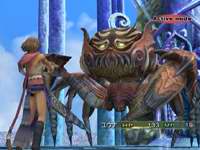| |
Site Navigation
Main
News
Forums
Games
Games Database
Top 100
Release List
Support Files
Features
Reviews
Previews
Interviews
Editorials
Diaries
Misc
Download
Gallery
Music
Screenshots
Videos
Miscellaneous
Staff Members
Privacy Statement
|
|
An interview with Brenda Brathwaite, designer of the Wizardry series, has been published at Stratos Group. Here's something from that excellent interview:
SG: I was recently involved in a long discussion on the definition and importance of 'immersion' in games. Since Wizardry 8 was a very immersive game, can you give us some insight into this subject from a developer's viewpoint? Is it important, and how do you bring it to a game?
BB: Itís the difference between making a game someone will remember and one someone will forget. How do you bring that to a player? First off, you donít get in the way. The less interface between the player and the game, the better. Admittedly, in some gaming genres, thatís a tough walk because there truly are so many options. Secondly, you get the player to identify with the character, so that he or she cares about what happens to that character. There are lots of ways to do that: pride is an easy one. Itís the whole basis of gaining levels and the quest tracker type stuff like ďHow many monsters did I kill?Ē In games like D&D Heroes, because character development is integral to them, itís an easier task.
Lastly, as youíre writing the story and the quests and the plots, reach out and grab the player. That might sound strange, but it was exactly what I was thinking when I decided to kidnap your character in Wizardry 8. I knew that would affect the player. Give players lots of choice, lots of decision and consequence. Itís like reading a book, and you canít help but turn the next page. You want to know what will happen. You care about the characters. Itís the same thing, but in a different format. D&D Heroes is a great example of that. I mean, from day one, players are in charge of their individual heroís future. Players keep them alive, their heroes gain levels, they choose moves for their individual heroes, and based on the moves they choose, they each end up with very individualized characters. The player has brought his or her hero through so much that when the hero is near death, the playerís truly worried. They donít want to just start over. They want to save them. Thatís what RPGs are known for. |
|
|





 Brenda Brathwaite Q&A at Stratos Group
Brenda Brathwaite Q&A at Stratos Group